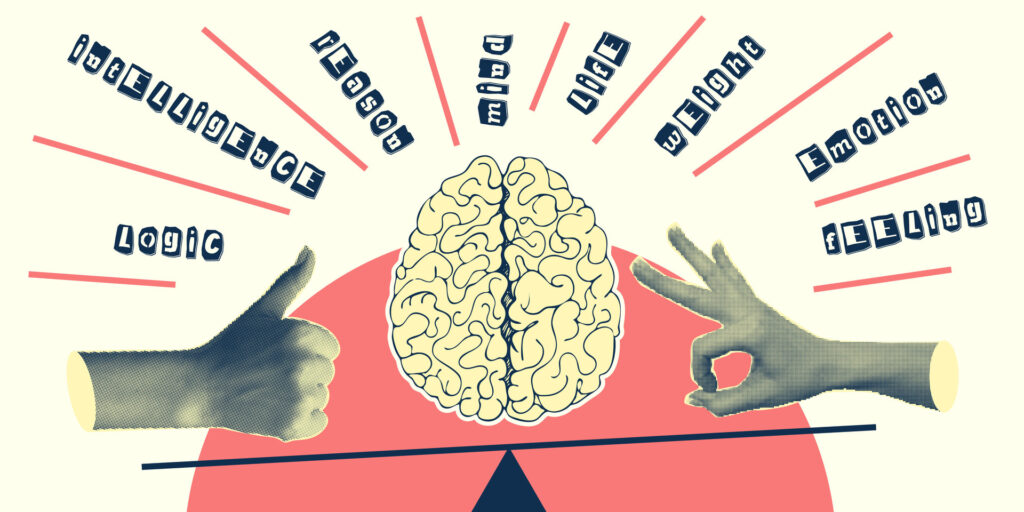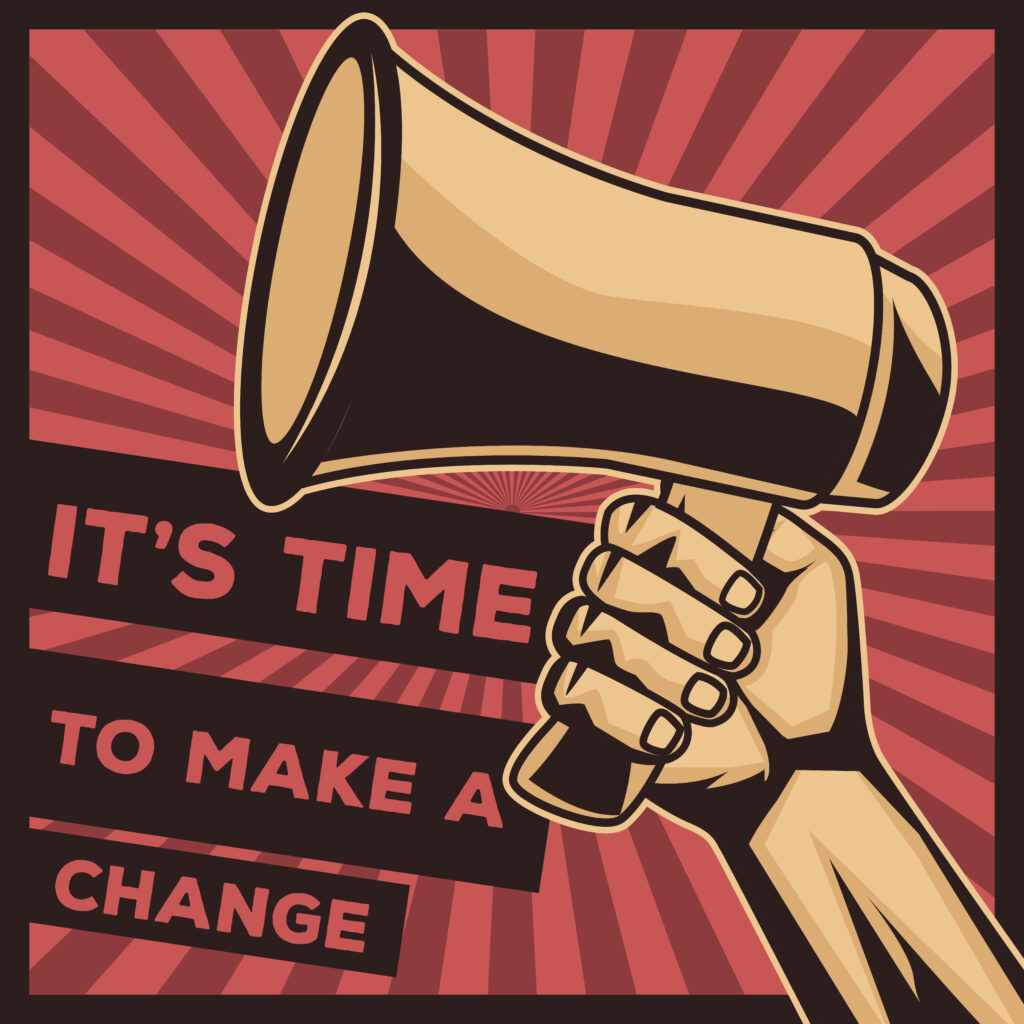The Frustration of Being Dismissed in the Exam Room

Walking into the doctor’s office didn’t always fill me with frustration and dread. The questions and concerns create an anxious static that lives in your head as a low hum constantly tingling at the base of your skull. Hope breaks through. ‘Will this be the doctor that finally figures it out?’ Only to walk out holding a diagnosis that seems more like a placeholder than a real solution—again. It’s as if we have reduced health to a series of checkboxes without considering the complex, interconnected systems that define who you are. When did healthcare become more about fitting you into a diagnosis than understanding the whole person?
There’s a world of difference between fixing and healing. Too often, doctors play the role of ‘fixers,’ focusing on individual symptoms as the problem rather than an important key to the solution. What we need are healers, people who are able to read the body as a whole and recognize that our bodies are fine-tuned, interconnected systems. When medicine involves reading the body rather than addressing a list of symptoms, that’s when real, lasting health can be achieved.
My experience is just one piece of a much larger, darker puzzle. One where healthcare providers too often overlook patients when they don’t fit neatly into a tidy clinical box. This is a plea for doctors to actually listen. A request to approach each patient with genuine curiosity. True care isn’t just about a diagnosis. It’s about understanding the whole damn person.
The Pattern of Dismissal

Have you ever been listing off your symptoms to a doctor, and you can tell they’ve mentally checked out? They’re nodding along, eyes fixed on you like a mildly interesting TV show. Then, that ‘bless-your-heart’ smile creeps across their face. Next comes the standard line: ‘You should focus on your anxiety. The brain is a fascinating thing, and we don’t fully understand it. Translation: “You’re hysterical.” The gaslighting: you could change this if you wanted to; it’s all in your head. Why is it the only time Western medicine sees the body as a unit when they can blame anxiety for symptoms they are too lazy to research? Most doctors seem to forget that they are like the lights on the dashboard of a car. Symptoms are the body’s way of communicating. Doctors are the mechanics of the human body. I hope they go to school to learn how to translate the body’s mode of communication and to heal the problem. But most doctors only want to prescribe meds for symptoms, refusing to see the body as a whole.
True expertise isn’t being a walking medical encyclopedia. It’s about knowing the vastness of what you don’t know and daring to ask the right questions. Massage therapists can’t diagnose, prescribe, or play the role of those in white coats for valid reasons. But why do we receive training to view the body as a whole and research cause and effect for understanding, yet doctors aren’t? When clients come in and start working on the upper back, I hunt for patterns. I quiz them about their daily rituals, their sleep positions, and their lounging (or their odd driving) postures. I ask about any ailments in their health records and the supplements they’re taking. And that’s just for starters. We do this because massage therapy has a proven physiological effect on the body, which can affect certain conditions. But we also do this because upper back pain is often caused by overworked pecs. We can work on the upper back and shoulders, and it will feel good, but addressing the pecs is necessary for the chronic pain to go away. Why is this Sherlock Holmes-level investigation a staple of massage therapy, but alien to many doctors, especially specialists? The problem is about navigating the whole twisted road, not just a snapshot of a single pothole. It’s about connecting the dots in a cosmic game of hide and seek, a skill that would make a fine addition to any doctor’s repertoire.
Instead, doctors often treat symptoms as if each were a lone puzzle piece. They ignore the grand picture they should be assembling. This inside-the-box thinking can and does lead to missing the crucial connections. Real medical care needs an integrated view, seeing how symptoms connect. They create a health story that’s less “Frankenstein” and more “masterpiece.”
Healthcare providers must approach each patient with a detective’s relentless curiosity. They should keep up with the latest medical research. They need to understand that the more they dig, the deeper the rabbit hole goes. Yes, patients sometimes embellish or omit details, either deliberately or from forgetfulness. But that doesn’t mean you stop asking the crucial questions. Only by untangling the clues and assembling the whole picture can anyone hope to deliver true understanding and effective treatment. After all, treating is pointless if you neglect the underlying issues. Symptoms are our body’s way of telling us something. That’s where the real challenge, and the real artistry, lies.
The Consequences of Ignoring Complexity

Think of the human body as a complex machine of gears, levers, knobs, and seals, all conspiring to work together. Symptoms are your body hinting at something wrong or off, causing havoc in the system. A relentless headache could be your body’s way of saying it might be stress, dehydration, poor posture, or a laundry list of other conditions. However, if you have a headache accompanied by vision issues, the list of possibilities narrows. When doctors get tunnel vision on the headache alone, they’re ignoring how one symptom might be part of a much larger, malevolent machine.
Understanding this complexity isn’t a fancy bonus; it’s the linchpin of effective treatment. Bodies unfold like messy, tangled knots. Treating symptoms in isolation is like trying to fix a clock by only examining the hands. Doctors who see symptoms as individual culprits might fix a superficial problem. But, they may leave a dark, lurking issue beneath.
Listening to a patient’s full story isn’t about being polite—it’s crucial for actually getting things right. If doctors only get half the story, they’re like detectives working with a single clue.
A patient with chronic fatigue could be facing:
- environmental stress
- poor sleep
- an undiscovered thyroid condition
- a hidden heart issue
Each of these possibilities could lead to wildly different treatments. Without a full grasp of a patient’s life and symptoms, the doctor might as well be throwing darts blindfolded.
Doctors need to approach each case with the same ferocious curiosity as a detective unraveling a convoluted plot. They should explore patients’ full stories. They must see how different symptoms interconnect. Then, they can piece together the broader narrative. This thoroughness can uncover hidden connections. It can lead to diagnoses that dig deep into the true story, not only scratch the surface. Only by embracing the full scope of a patient’s experience can doctors hope to offer care that addresses the whole person.
Mansplaining in Medicine

Let’s discuss a special frustration. It’s for those times when a doctor’s more about delivering a patronizing TED Talk on your health than healing you. One of the most frustrating reoccurrences is being told my issue is stress. Not because it’s impossible. But, each time a doctor uses it, they neglect to inquire about how I manage stress or whether my stress is under control. They don’t even give me the standard psychological questionnaire as a PCP or OB/GYN. You know what they say about assuming; it makes an ass out of you. Mansplaining in medicine isn’t about who’s in charge. It’s about who gets to dictate your diagnosis. It often leaves you feeling like a mere footnote in your own health saga.
Let’s not kid ourselves. Mansplaining is often linked to male doctors. But female practitioners aren’t immune to this delightful behavior either. It’s a systemic issue, not a personal flaw. It’s like a script that the mainstream health industry follows.
The root of this problem is as old as the medical profession itself. Historically, only the male body was studied. This left a gaping chasm in women’s health. This male-focused research approach leaves the medical community unprepared. They struggle to understand women’s unique symptoms. The logic is mind-blowing to me. How can so many scientists believe a person with a 28-day hormone cycle will react like someone who doesn’t? That isn’t even taking into account that the hormones themselves are different. Female doctors are more likely to practice medicine to embrace the whole body, thanks to their own experiences, but not always.
Women’s symptoms get brushed off as either a dramatic overreaction or an afterthought.
This issue doesn’t only lead to eye-rolls and frustration; it erodes trust between patients and their healthcare providers. In the time of mental asylums, this is the kind of hysteria that would get a woman lobotomized or committed. The only progress we’ve made on a large scale is to outlaw those practices—to a point. When women feel dismissed or belittled, it can drive them away from seeking medical help altogether. This creates a vicious cycle. Feeling misunderstood makes “care” feel like a bad joke. So, women have to fend for themselves in their health journeys. And people wonder why so many women are into herbalism? This feels like common sense; we have a clear cause and a clear effect.
The solution requires a radical script rewrite. We need a medical field that addresses the unique needs of all its patients, regardless of gender. And with no regard to pad big pharma’s bottom line. Doctors need to break the cycle and ditch the condescending attitudes. Start approaching each case with genuine curiosity and respect. It’s not only about hearing patients—it’s about understanding the full, often messy, narrative of their health. Only through empathy can we transform this farce into a working healthcare system.
Intelligence vs. Knowledge in Healthcare

Theory constitutes knowledge, but correct application necessitates mental acuity. True intelligence requires confidence and humility, not ego and patronage. It’s like a massage therapist who knows every muscle group. But their draping is terrible, and it feels like they are just repeating a memorized sequence for you. Their treatments feel memorized and repetitive, without adjusting to the client’s specific needs.
Critical thinking in medicine should be as essential as a surgeon’s scalpel. It’s not enough for doctors to rely on their well-worn playbooks or their narrow field of expertise. When doctors rely only on their routines or special knowledge, they might miss details. Those details could reveal the real problem. It’s like trying to solve a mystery with a single clue while ignoring the pile of evidence scattered around. Critical thinking requires us to step back. We must question the obvious and embrace the messiness of the whole picture.
Real skill is more than just knowing facts. It’s about adapting your knowledge to fit real-world situations. Yes, eczema can be easy to spot if you know what you’re looking for. We also know it is a histamine response, but knowing what the body is doing on a physiological level doesn’t tell us why it’s doing it. Eczema can also be a sign of thyroid issues, hormone imbalance, bacterial skin infection, viral infection, and MCAS (Mast Cell Activation Syndrome.) Even if you are a specialist, you should be expected to know comorbidity factors relating to your specialty.
For the patient-doctor dynamic to work, it must be a duet, not a solo. Patients aren’t passive audiences; they’re active participants with their own narratives and insights. Imagine a doctor who treats their patients like reluctant extras in a soap opera, ignoring the vital backstory they bring. Patients have intimate knowledge of their bodies, daily rituals, and subtle changes. When doctors choose to listen, it’s not to boost the patient’s ego—it’s to factor these insights into their diagnosis. A shift to real collaboration isn’t changing the pace. It’s overhauling how medical practitioners work. By blending a doctor’s expertise with the patient’s experience, it prioritizes the patients’ health.
A Call for Change and a Personal Resolution

The frustration I felt after my visit with the male specialist lingers. He barely listened, brushed off my concerns, and missed an opportunity to truly understand my symptoms. His lack of curiosity meant another missed diagnosis, leaving me feeling like just another checkbox on his list. The next day, though, I had a different experience with a female doctor. She didn’t just hear my words—she paid attention to the subtle signs like my brain fog. Her questions were probing, and her concern was genuine. It was as if I could see the gears in her head moving faster as each clue I revealed crossed items off her mental “probable causes” list.
Her thorough approach led to a diagnosis of Mast Cell Activation Syndrome (MCAS), a complex condition often overlooked due to its broad impact on the body. Her willingness to listen to me prattle on (I don’t go out much—and sometimes it shows). Then, asking me follow-up questions based on things I said that led her to more clues. The stark contrast of these two appointments, one after the other, was not just about having the knowledge—it’s about how you apply it. No one expects doctors to have all the answers right away. But, there is an expectation of diligence. They should take the time to gather all the information needed to make a diagnosis.
Diagnosing conditions like MCAS requires more than just expertise. It requires curiosity, thoroughness, and a willingness to engage with patients to uncover the hidden connections between symptoms. My repeated negative experiences have eroded my trust to the point where I now request female providers. While not all male doctors dismiss their patients, my trust has been broken too many times.
In a system that seems to aim to silence, not understand, it’s vital to find healthcare providers who truly listen. For anyone else navigating this maze, my advice is simple: demand to be heard. Your health is too important to let anyone overlook it.






